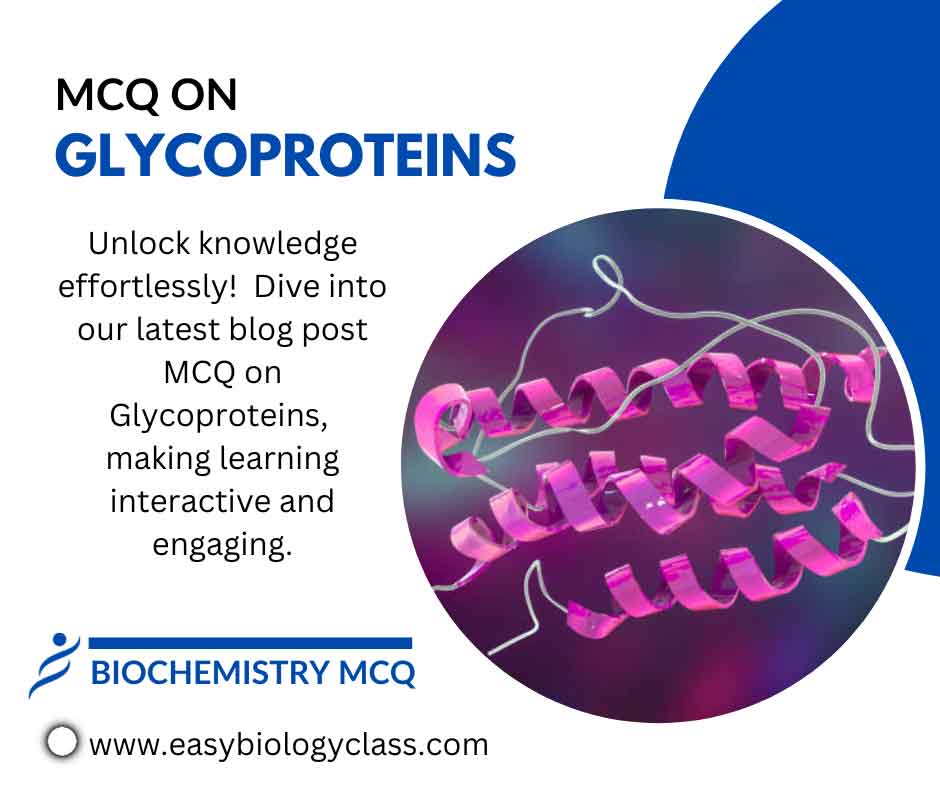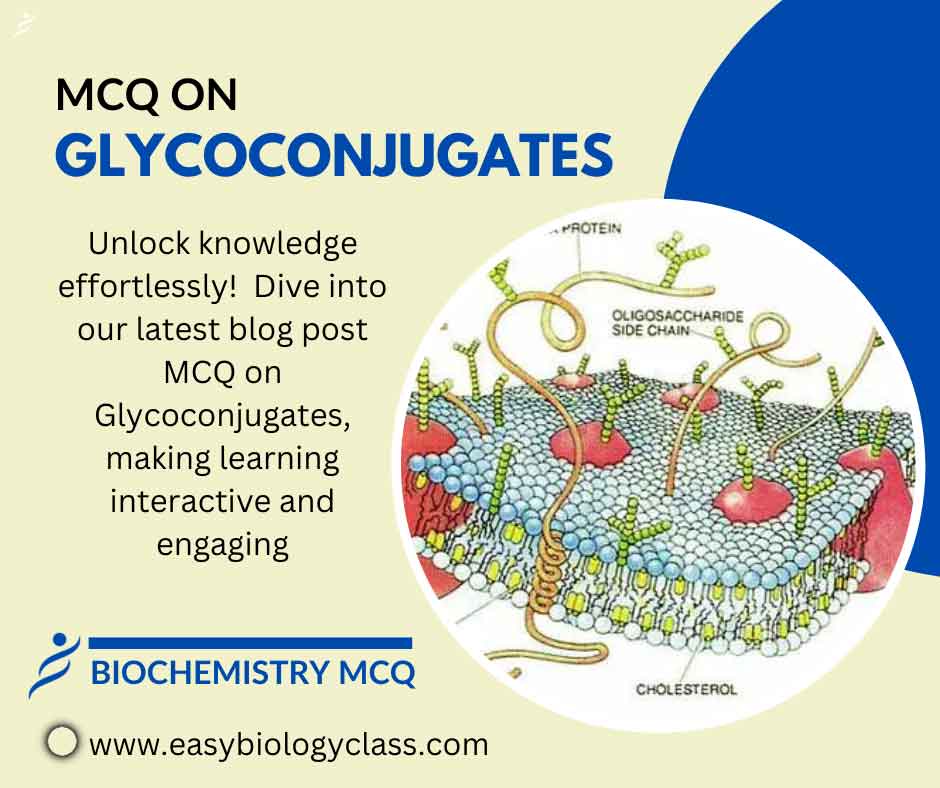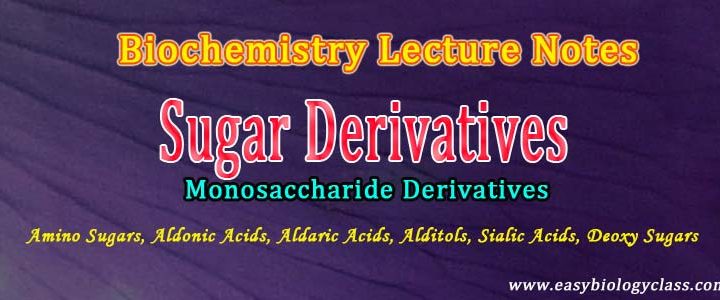Glycoproteins are proteins with attached carbohydrates (sugars). They play crucial roles in cell signaling, immunity, and structure. These molecules are involved in various biological functions, acting as receptors, enzymes, or structural components in cells and tissues. This is an MCQ on Glycoprotein Structure, Examples and Functions. Biochemistry Notes | Biochemistry […]
Continue ReadingTag Archives: Carbohydrates
MCQ on Glycoconjugates
Glycoconjugates are molecules composed of carbohydrates (sugars) linked to proteins, lipids, or other biomolecules. They play vital roles in cell communication, immunity, and structural support, serving as markers for cellular recognition and interaction in biological systems. This is an MCQ on Glycoconjugates with Examples and Functions. Biochemistry Notes | Biochemistry […]
Continue ReadingStructure, Examples and Functions of Proteoglycans, Glycoproteins and Glycolipids (Glycoconjugates)
What are Glycoconjugates? Polysaccharides and oligosaccharides act also as information carrier molecules. Informational carbohydrate is covalently joined to a protein or lipid to form glycoconjugates. As the name suggests, the glycoconjugates are conjugate (joined) molecules of carbohydrates other macromolecules such as proteins or lipids. The present post discusses the structure, […]
Continue ReadingGlycosaminoglycans: Structure, Examples and Functions (Biochemistry Lecture Notes)
What are Glycosaminoglycans? GAGS Glycosaminoglycans are the hetero-polysaccharides of Extra Cellular Matrix (ECM) of Cells. ECM is filled with a gel-like material and it is the ground substance which holds adjacent cells. ECM gives a porous pathway for nutrients and oxygen. Glycosaminoglycans are often denoted as GAGs. Glycosaminoglycans are unique […]
Continue ReadingMonosaccharide Derivatives with Examples (Biochemistry Lecture Notes)
What are Sugar Derivatives? Organisms contain a variety of sugar derivatives. Sugar derivatives are modified monosaccharides. In sugar derivatives, the monosaccharide molecules that have been modified with substituents other than hydroxyl groups such as amino groups, acid groups, phosphate groups, acetate groups etc. Natural sugar derivatives have important biological functions. […]
Continue Reading




